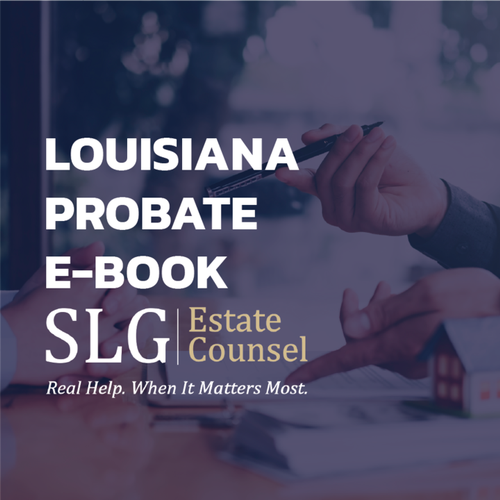After your loved one dies, it’s possible that one or more potential heirs may dispute the validity of the will. Whether or not the will was properly executed and legally binding, it’s essential to understand how a Louisiana succession works. 
Petition to Open a Succession Proceeding
A potential heir must begin a succession case before any objections about the validity of a Last Will and Testament may be heard by a Louisiana court.
Someone who believes they have an interest in a person’s estate may petition the court for the probate and execution of the will. The potential heir who filed the petition must provide the court with the document alleged to be the Last Will and Testament, even if the person filing the petition has doubts about the document’s authenticity or validity. Additionally, the petitioner must present the court with evidence of the decedent’s death.
Opposition to the Petition
After the petition to begin the succession proceeding is filed, anyone who objects to the legal validity of the Last Will and Testament may file an objection with the court. The initial objection may be written or made orally during a court proceeding. However, if the initial objection is made orally, it must be followed up with a written objection.
The opposition to the petition for the probate of a testament must:
- State the name and domicile of the person filing the opposition
- Explain why the person filing the opposition has an interest in this matter
- Explain why the testament is invalid and the grounds for opposing the petition to open the succession proceeding
- Include a prayer for appropriate relief
- Be served upon the petitioner for the probate of the testament
After the opposition is filed, the court will schedule a contradictory trial.
Contradictory Trial
At the contradictory trial, the court will consider the legal validity of the Last Will and Testament. The court is not interested in the fairness of the will’s contents; rather, it cares whether the will meets the requirements of Louisiana law. Accordingly, the court will consider evidence from the party filing the opposition to the succession proceeding and from any interested parties defending the validity of the will.
Once all of the relevant evidence is heard, the court will decide on the will’s validity. If the courts finds the will valid, the estate will be probated according to the terms of the will. However, if the court finds that the will is invalid and no other valid will is found and presented to the court, the estate may proceed according to Louisiana’s laws of intestacy.
Protect Your Rights With the Help of a Louisiana Succession Lawyer
In a disputed will case, you may have a lot at stake—both emotionally and financially. Whether you believe that the will is valid or invalid, you likely want your loved one’s wishes to be honored, and you want a fair inheritance. Additionally, the person(s) on the other side of the case may be your siblings, children, aunts, uncles, or other loved ones. Estate litigation is often challenging for all of these reasons, but you don’t have to handle it alone. Instead, our experienced Louisiana estate litigation lawyers can help you by:
- Carefully reviewing any documents alleged to be the decedent’s Last Will and Testament to determine if they are legally valid and whether any objections may be made to the court
- Advising you of all of your legal options
- Making sure that all petitions and supporting documents are filed with the court according to court procedural requirements and before all legal deadlines
- Representing you in court
Each year, our legal team represents hundreds of Louisiana clients with their succession issues. Our compassionate attorneys will work hard to resolve your case efficiently and cost-effectively. Please contact us today to learn more about your rights and how we may help you during this challenging time.
|
Related Links: |



